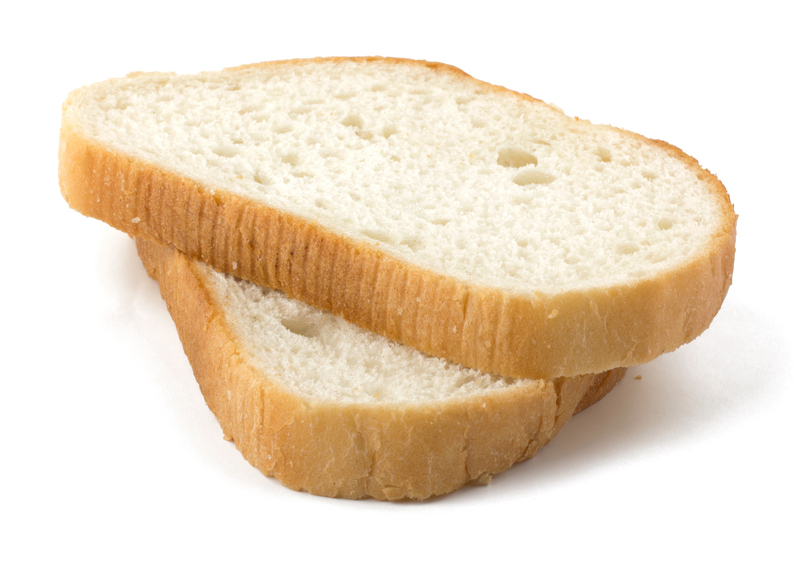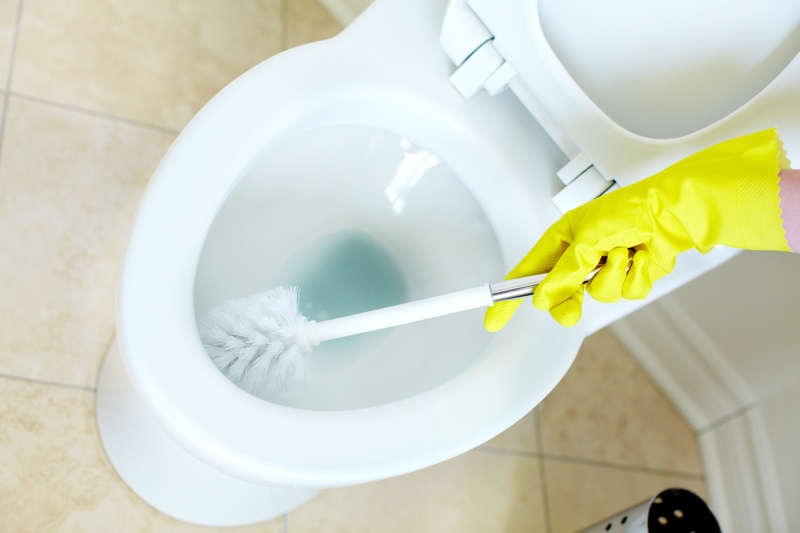Discover Ways to Vanquish Pet Odors in Your Home
Posted on 27/08/2025
Discover Ways to Vanquish Pet Odors in Your Home
Are you struggling with stubborn pet smells invading your living spaces? Pets are beloved companions, but even the best trained dogs and cats can leave behind lingering odors. Whether you're a long-time pet owner or welcoming a new furry friend, managing pet smells is crucial for a fresh, inviting home. This comprehensive guide will help you discover proven methods to eliminate and prevent pet odors, ensuring your space smells clean and pleasant--all the time!
Understanding the Source of Pet Odor
To effectively get rid of pet smells, it's essential to understand where these odors come from. Pets can leave powerful scents in various ways:
- Urine and feces: Accidents happen, even with well-trained pets.
- Dander and fur: Shedding and skin flakes can collect on furniture, carpets, and in the air.
- Saliva: Dogs and cats often drool or lick surfaces around your home.
- Litter boxes and cages: Improperly maintained pet areas can quickly become odor hotspots.
- Pet bedding and toys: Over time, these items absorb scents, creating persistent odors.
Pet odors can embed deeply in carpets, upholstery, and hard surfaces over time. Combatting the smell is a twofold effort: cleaning and prevention.

Effective Ways to Remove Pet Smells from Your Home
Ready to tackle pet odors? Here are proven, practical strategies for odor removal and ongoing freshness.
1. Regular Pet Grooming
Maintaining a clean pet is your first defense against household pet odors. Regular baths, brushing, and dental care remove dirt, dander, and oily residues that contribute to bad smells.
- Bathe your pet: Use a veterinarian-approved shampoo suited for your pet's coat. For most dogs, a bath every month or two suffices--cats usually handle their own grooming but may need help if they get dirty.
- Brush regularly: This reduces shedding and spreads natural oils for a healthier coat.
- Clean paws: After walks, wipe your pet's paws to prevent odor and bacteria from tracking indoors.
- Address dental care: Brushing your pet's teeth or providing dental chews minimizes bad breath (a.k.a. halitosis).
2. Frequent and Deep House Cleaning
Target odor hotspots throughout your home. Here's how to deep clean and maintain freshness:
- Vacuum thoroughly--and often: Use a vacuum with a HEPA filter to collect dander, fur, and dust mites. Focus on carpets, rugs, furniture, and curtains.
- Steam clean carpets and upholstery: Hot water extraction neutralizes odors and kills bacteria deep in fibers.
- Wash bedding, toys, and slipcovers: Use a pet-safe enzymatic laundry detergent for best results. Air-dry in the sun, if possible, to further destroy odors.
- Mop hard floors: For tile, linoleum, or hardwood, use a cleaning solution that neutralizes bacteria and is safe for pets.
- Don't forget the air: Vacuum and clean air vents, and replace HVAC filters regularly to reduce airborne pet smells.
3. Enzyme Cleaners: The Secret Weapon
Traditional cleaning products may temporarily mask odors, but enzymatic cleaners break down the organic molecules responsible for pet odors, such as proteins in urine, vomit, and feces.
- Apply directly to affected areas: Follow product instructions for dwell time.
- Use on carpets, upholstery, floors, and pet bedding: If an accident happens, treat it immediately for best results.
- Safe for most surfaces: Double-check the label for use on hardwood or specialty materials.
*Enzymatic cleaners are especially powerful for eliminating cat urine and persistent dog odors--even from old stains.*
4. Neutralize the Air: Freshening Your Living Spaces
Pet odors can linger in the air long after surfaces have been cleaned. Use these tips for a truly fresh-smelling home:
- Air purifiers with HEPA and activated carbon filters: Remove dander, volatile organic compounds (VOCs), and airborne odors.
- Open windows for ventilation: Allow fresh air to circulate whenever weather permits.
- Use natural odor absorbers: Bowls of baking soda or activated charcoal in discreet areas help soak up smells.
- Simmer natural scents: Boil citrus peels or herbs for a subtle, pleasant aroma.
- Avoid synthetic air fresheners: These often mask, rather than neutralize, odors and may irritate sensitive pets.
5. Pet Area Maintenance: Litter Boxes, Cages, and Bedding
High-traffic pet zones need special attention. Cleanliness is crucial for odor control and your pet's health:
- Litter boxes: Scoop clumps daily, replace litter weekly, and wash the box with soap and water between changes. Try unscented, low-dust, or silica-based litters for better odor control.
- Cages and habitats: For rodents, birds, or reptiles, spot-clean daily and deep-clean weekly with a pet-safe disinfectant.
- Pet bedding: Machine-wash beds, blankets, and soft toys every 1-2 weeks to keep odors in check.
- Dog grooming stations: Disinfect frequently if you bathe your pet at home to prevent bacterial growth.
Preventing Pet Odors: Long-Term Solutions
While eliminating existing pet odors is important, prevention is the best strategy for a consistently fresh home.
Training and Behavior Management
Preventing accidents and teaching pets appropriate bathroom habits helps minimize odor at the source:
- Consistent training: Puppies and new rescues need frequent potty breaks and positive reinforcement.
- Litter box placement: Cats prefer clean, quiet, and accessible locations for their boxes.
- Address marking behaviors: Spaying or neutering and using pheromone sprays can reduce territory marking.
- Reward good habits: Praise and treats encourage pets to do their business where they should.
Choose Pet-Friendly Home Furnishings
The type of surfaces and materials you have can make a big difference in odor management:
- Opt for machine-washable area rugs, cushion covers, and throws.
- Consider leather, vinyl, or microfiber furniture: These resist odors and stains better than traditional fabrics.
- Limit wall-to-wall carpeting: Hard-surface flooring reduces the risk of lingering pet odors.
Set Pet-Free Zones
Establishing areas off-limits to pets minimizes cleaning and helps keep at least part of your home smelling pristine.
- Bedrooms: Keeping pets out of bedrooms can reduce allergens and ensure a better night's sleep.
- Furniture: Teach pets which couches or chairs they may or may not use. Provide comfy alternatives where climbing is allowed.
Maintain Your Pet's Health
Sometimes, changes in pet scent can signal underlying health problems. Visit your veterinarian if you notice:
- Persistent "doggy" or "catty" smell, even after grooming and cleaning
- Increased urination frequency or urine odor
- Bad breath, ear odor, or skin infections
*Healthy pets are less likely to develop strong or foul odors. Stay up to date with vet visits, parasite prevention, and grooming for all-around wellness.*
DIY Natural Solutions to Combat Pet Odors
Looking for safe, budget-friendly options? Natural remedies can be highly effective for neutralizing smells without harsh chemicals.
- Baking soda: Sprinkle on carpets and soft surfaces, let sit for 30 minutes, and vacuum thoroughly.
- White vinegar: Mix a 1:1 ratio with water to wipe down hard surfaces and neutralize urine smells.
- Lemon juice: A natural disinfectant with a fresh scent, but test before using on wood.
- Hydrogen peroxide (3%): Removes stains and kills bacteria. Spot-test on fabrics.
- Essential oils: Add a few drops of pet-safe essential oils (such as lavender or chamomile) to cleaning water for a gentle scent--but be sure the oil is safe for your animal, as some oils are toxic to cats and dogs.
Common Mistakes to Avoid with Pet Odors
While trying to get rid of pet scents, beware of these common pitfalls:
- Masking odors instead of removing them: Scented candles and air sprays cover up but don't cure persistent smells.
- Using ammonia-based products: The smell can mimic urine and trigger repeat accidents, especially with cats.
- Ignoring hidden stains: Use a blacklight to reveal old urine spots on carpets and pads for thorough cleaning.
- Under-cleaning large or multi-pet homes: High-traffic pet areas need extra attention and cleaning schedules.
- Skipping regular vet checkups: Medical issues can cause or worsen odors--especially urine or skin diseases.

Frequently Asked Questions About Eliminating Pet Odors
What is the best way to eliminate dog smell in a house?
The most effective approach combines frequent grooming, vacuuming with a HEPA filter vacuum, regular washing of pet beds and toys, and the use of enzymatic cleaners for any accidents. An air purifier helps keep the air fresh, while baking soda can be used on carpets and upholstery between deep cleans.
How do I get the cat pee smell out of my carpet?
First, blot as much urine as possible. Apply an enzymatic cleaner specifically made for pet urine, and allow it to soak according to the product label. Avoid any ammonia-based cleansers, as they can make the problem worse. For stains that reappear or older spots, professionally steam cleaning the carpet may be necessary.
Do air purifiers really help with pet odors?
Yes--especially models with HEPA filters and activated carbon. These trap both airborne particles (dander, fur) and neutralize smelly organic compounds, greatly improving indoor air quality for households with pets.
How can I keep my litter box from smelling?
Scoop clumps and solid waste daily, completely change the litter weekly, and wash the box regularly. Use high-quality, odor-absorbing litter and consider placing a small air purifier nearby to help.
Final Thoughts: Enjoy a Fresh, Pet-Friendly Home!
Pets are wonderful family members--but you don't need to sacrifice a fresh, clean home. By practicing consistent grooming, routine cleaning, and smart odor prevention, you'll control and even vanquish pet odors for good. From using the right products to establishing healthy habits, these tips transform your space into a welcoming, pleasant-smelling sanctuary--for both you and your four-legged friends!
Remember, conquering pet odors takes patience and diligence, but lasting freshness is just a few steps away. Put these strategies to work and enjoy all the coziness of pet ownership, minus the smells!




